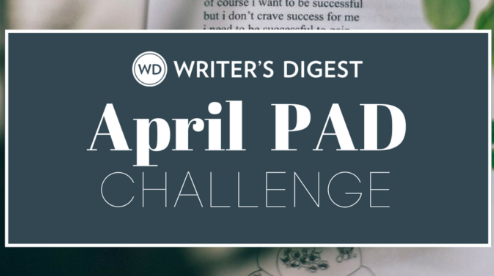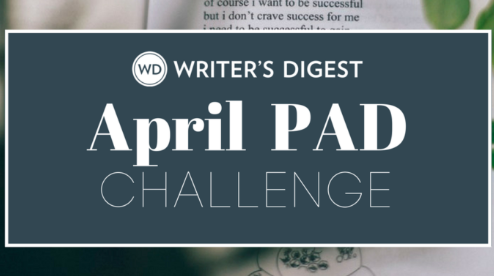How (and Why) to Put Hope in Writing
TikTok and Instagram poet and yoga teacher Victoria Hutchins discusses how (and why) to put hope in writing, including three tips for making it happen.
As I sat down to write this article, my neighbor knocked on my door. When I mentioned I was working on an article on hope, she winced.
She’s not alone in that feeling. If the 5th to 10th centuries are called the Dark Ages, perhaps we should call the 21st century the Painfully Bright Age. We’re living in a time of staggering information overload, and the information is often heartbreaking.
Each morning, our phones hand us a menu of fresh crises. Our newsfeeds dish up crisp footage of tragedy after tragedy. We’re one screen tap away from connecting with anyone we’ve ever met, and yet, research suggests we’re lonelier than ever.
Hopeful art is a tall order in an age of all-you-can-eat horrors. It can feel like we have just two options: Look away or write cynically. If you’re anything like me, you have no interest in closing your eyes and rose-tinting your work. And yet, you might worry your words are an insufficient response to today’s suffering.
In his Netflix special Inside, comedian Bo Burnham calls out this fear. His song Comedy asks: Should I leave you alone? / ‘Cause, really, who’s gonna go for joking at a time like this? He points to the hubris of believing in the healing power of your own art, quipping, If you wake up in a house that’s full of smoke, don’t panic—call me, and I’ll tell you a joke.
As someone who spent the last year writing a book of poems on hope, I relate. I’ve questioned whether it’s vain to believe your art could offer others hope. I’ve wondered: Is it worth trying to write about hope at all?
But then I think about that famous quote from John Green’s The Fault in Our Stars: Pain demands to be felt. And I think about how hope doesn’t. Despair doesn’t need our help, but hope does. Hope has to be chosen. Our writing likely won’t heal the world, but if it makes someone else feel less alone in it, then maybe it’s done its part.
Of course, we must keep writing about hope. Hope is all we ever have, and we have to keep choosing it even if we’re afraid our words aren’t enough.
3 Tips for Putting Hope in Your Writing
Here are a few tips for keeping hope alive in your work:
- Find hope in honesty. The poet Andrea Gibson said, Even when the truth isn’t hopeful, the telling of it is. The writing that makes me feel the most hopeful in hard times often doesn’t suggest a path forward. It names hard experiences I know by heart, ones that aren’t talked about much. You don’t always need to find a silver lining to create a sense of hope in your writing. It might be enough to say a quiet part of someone’s struggle out loud.
- Go heavy on grit. Hopeful writing quickly becomes saccharine when we shy away from telling the ugly side of the story. In an age of comment sections and like buttons, the temptation to sanitize your art is strong. But my favorite art often makes me clutch my pearls. One of my favorite grittily hopeful poems, "Relax," by Ellen Bass, shoots straight from the very first line: Bad things are going to happen. Bass leaves few hot-button issues untouched in describing the problems life might include—addiction, infidelity, and more. By the time she moves on to the bright side, the reader is desperate for it. More importantly, we’re ready to believe what she has to say about the good after seeing how she pulled no punches in describing the hard. To create a sense of hope, we first have to make our readers feel seen.
- Consider hope a choice. The poet Mary Oliver once said, Attention is the beginning of devotion. Ultimately, we can’t control how we feel. We certainly can’t control how our readers feel. But we can control where we direct our attention, in both our lives and our work. And one of the most gracious facts of life is this: When we give our attention to something, we find more of it in the world. It’s like when you buy a new car, and suddenly see that type of car everywhere. Maybe hope is no different. Maybe writers shouldn’t worry about cultivating feelings of hope in our work, and instead should focus only on noticing and recording glimmers of its existence. For those who choose to pay attention, that might be enough.
Check out Victoria Hutchins' Make Believe here:
(WD uses affiliate links)







